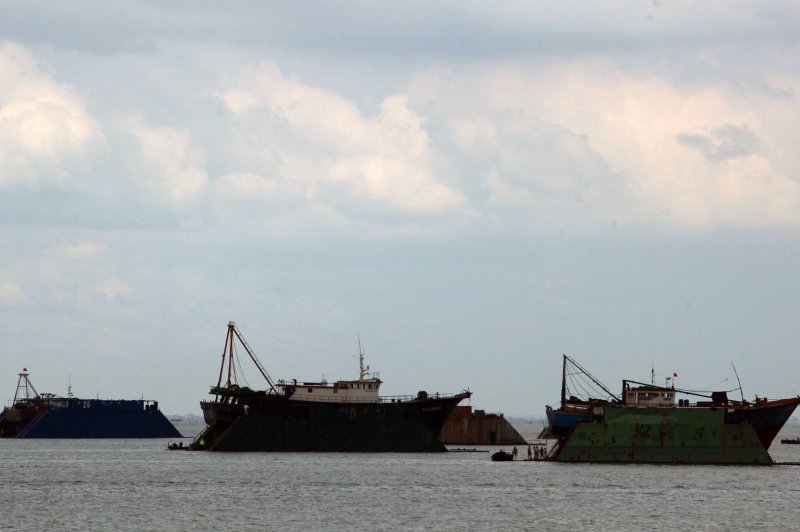Chinese and Vietnamese fishing boats lobby for territory in the South China Sea. New research suggests climate change will encourage the flow of natural resource wealth from poorer to richer countries. File photo by Stephen Shaver/UPI |
License Photo
NEWARK, N.J., Feb. 24 (UPI) -- The rich are getting richer and poor are getting poorer. It's the kind of populist refrain that's become common on the campaign trail during U.S. primary season, but this time, it's coming out of the mouths of climate scientists.
According to a new study out of Rutgers University, climate change is shifting valuable resources away from temperate zones inhabited by poorer nations and toward the polar regions near wealthier countries.
"What we find is that natural resources like fish are being pushed around by climate change, and that changes who gets access to them," Malin Pinsky, professor of ecology and evolution at Rutgers, said in a press release.
It's not just that fish stocks are moving closer to wealthier nations. Wealthier countries also tend to have stronger regulatory and resource management systems, allowing them to reap the benefits of newly available resources, thus furthering inequality.
The new study, published in the journal Nature Climate Change, is based on a unique climate model developed by Pinsky and his colleagues.
The model imagines the fates of two fictitious fishing towns as they interact with their shifting fish stocks and each other. Simulations showed "inclusive wealth" -- fish, trees, plants and other valuable environmental resources -- increasingly shifted to the northern town as the planet warmed.
"We tend to think of climate change as just a problem of physics and biology," Pinsky says. "But people react to climate change as well, and at the moment we don't have a good understanding for the impacts of human behavior on natural resources affected by climate change."
A number of studies have previously shown that the poorest countries are the most vulnerable and least able to react to climate change. The opposite is true of the wealthiest countries -- they can afford to build bridges and flood walls, to migrate and invest in sustainable energy. Shifting resources are likely to exacerbate this dynamic.















